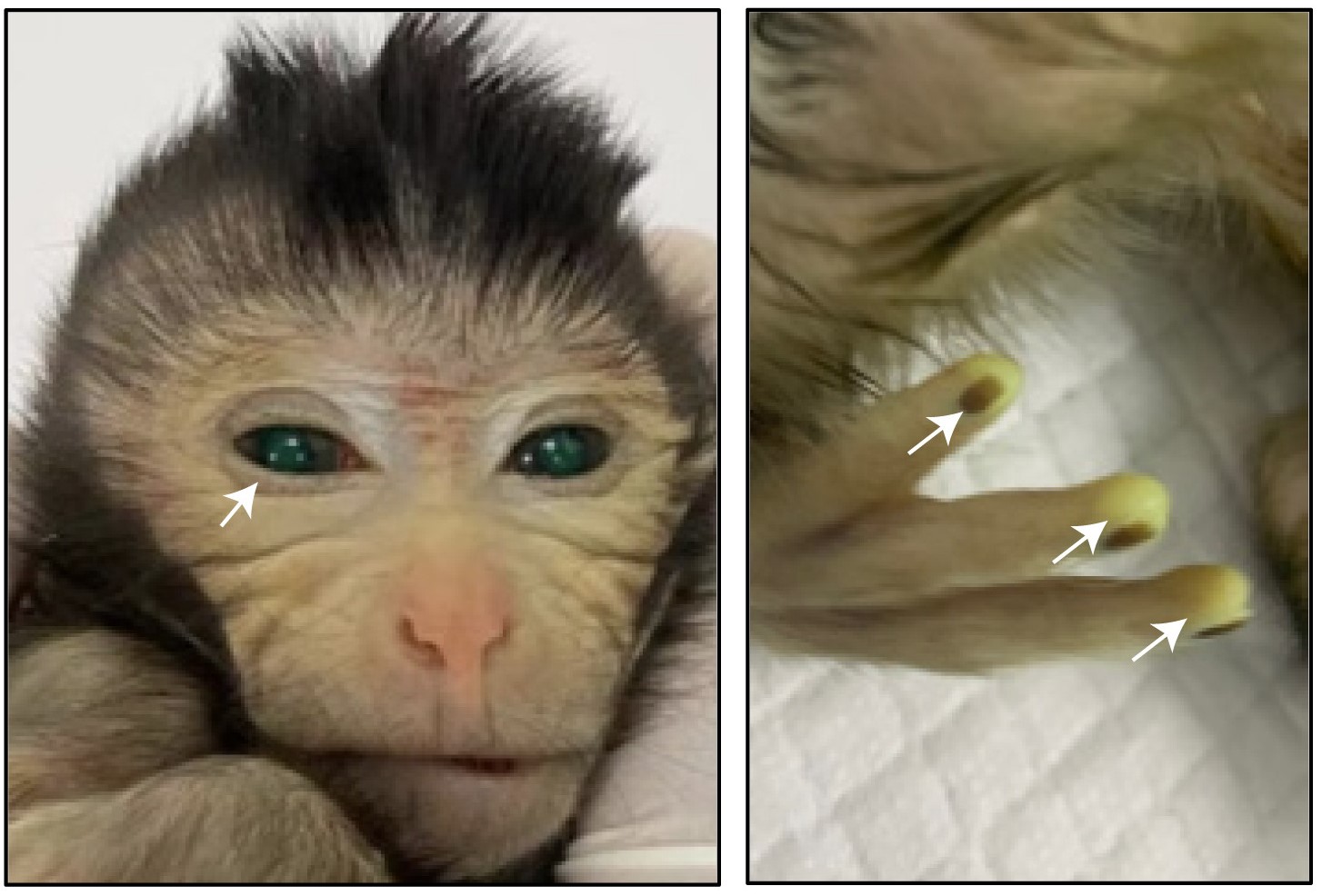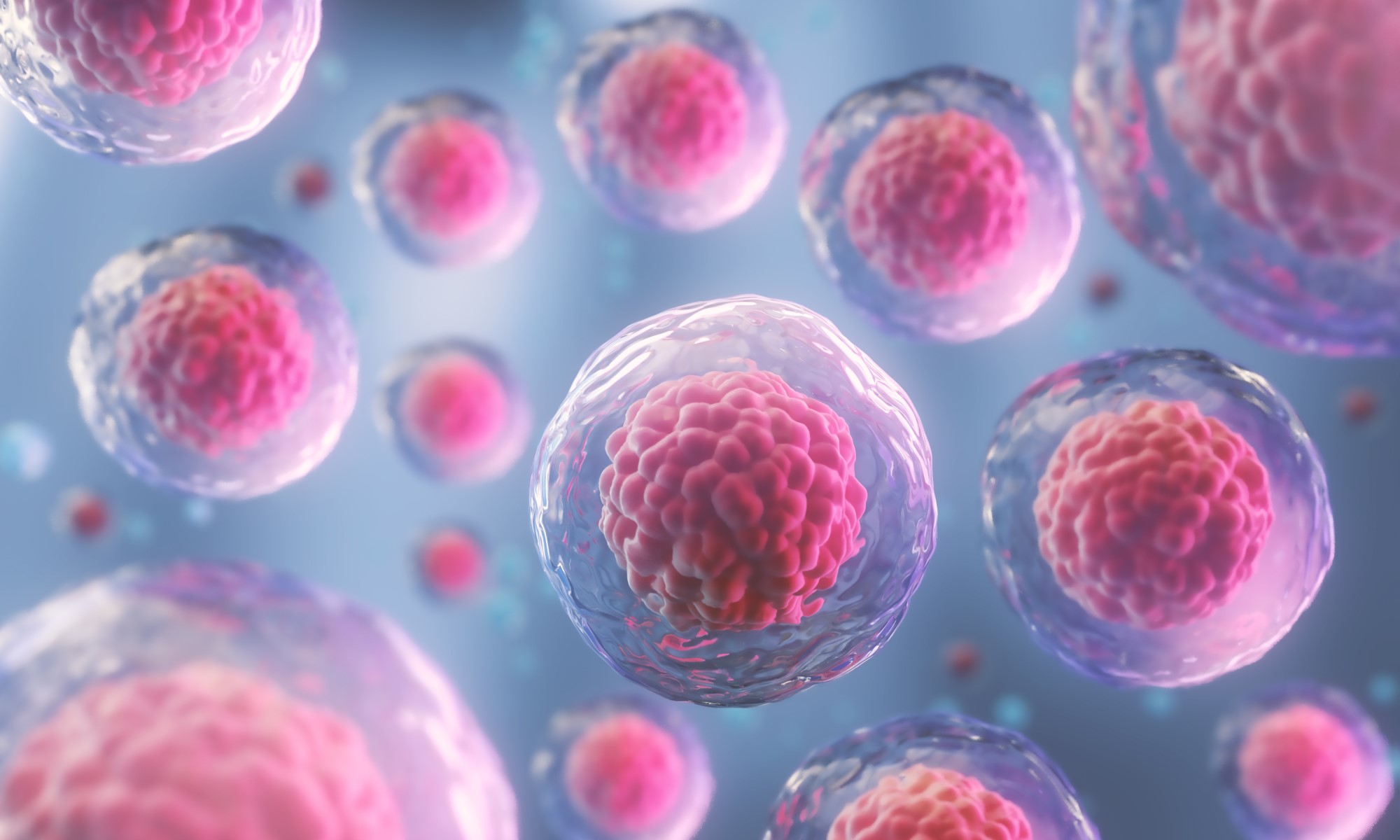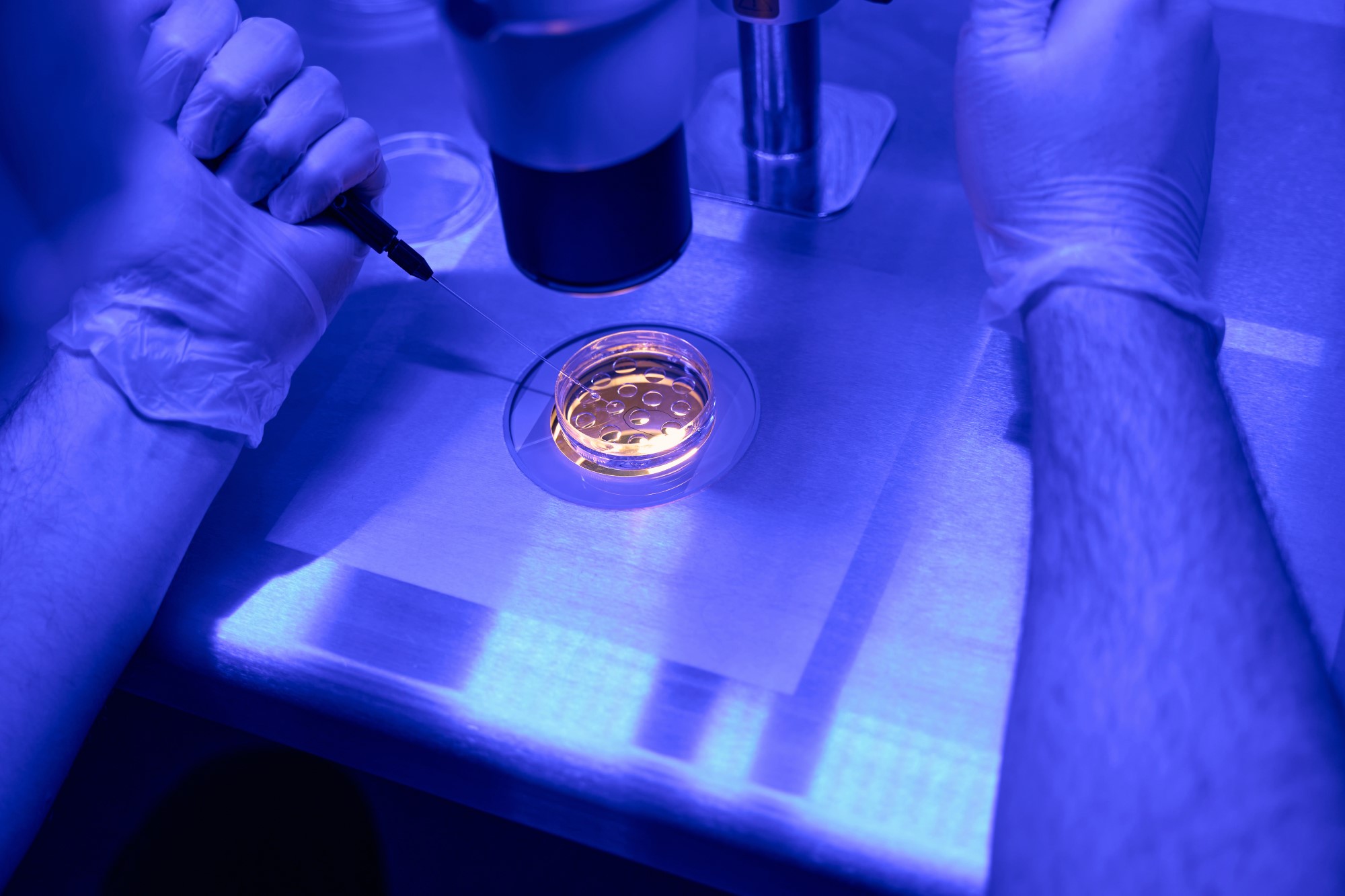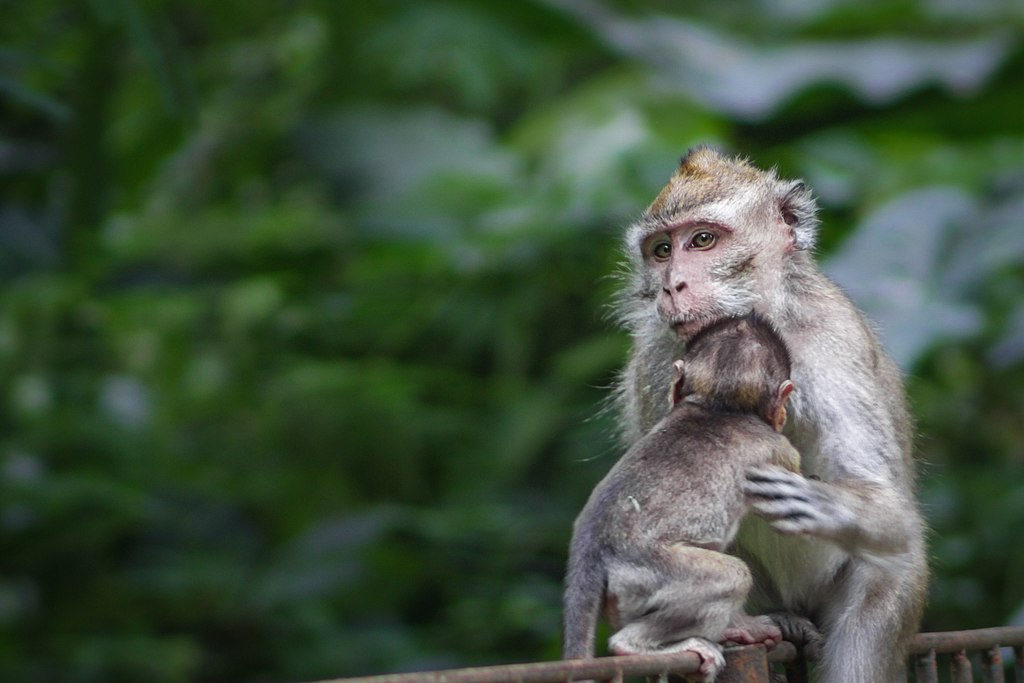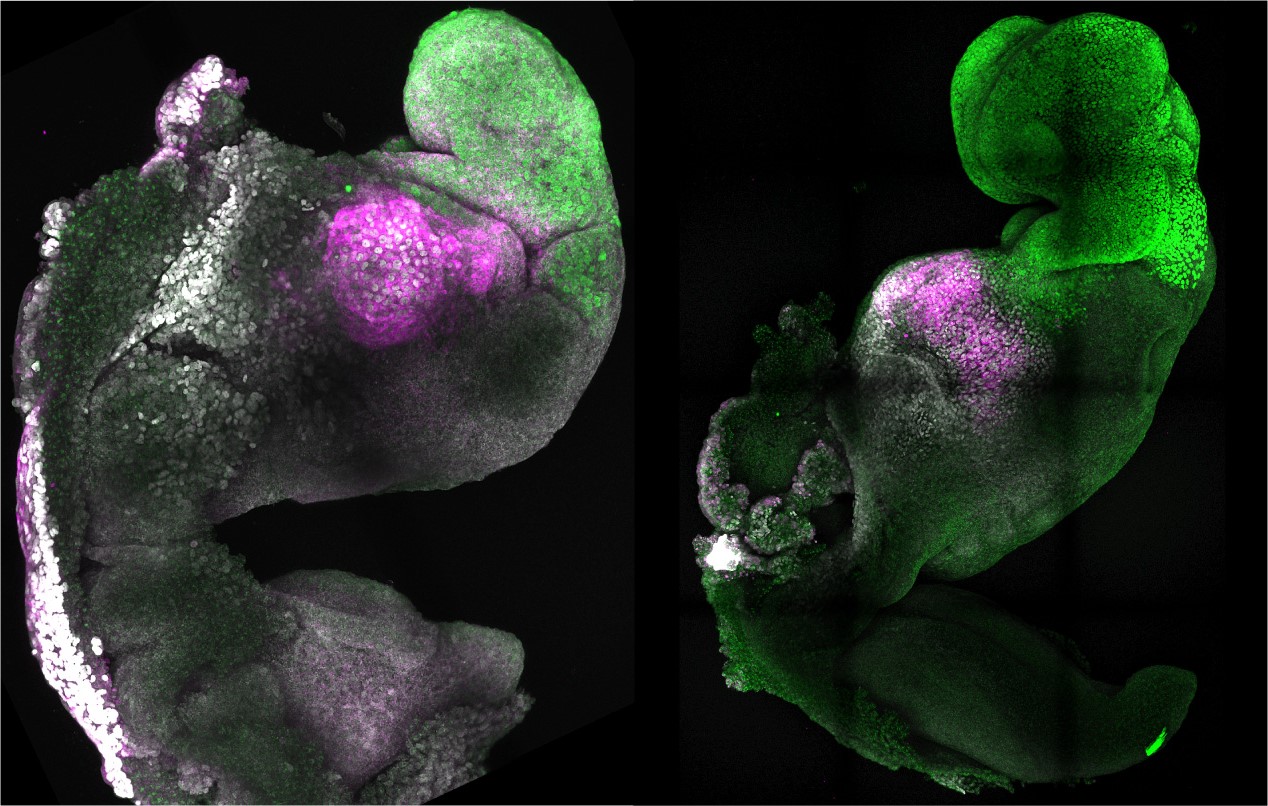Reactions: First chimeric monkey born from embryonic stem cell lines
A Chinese research team has reported the birth of a crab-eating macaque that is a chimera: an animal generated from the mixing of embryonic cells from two different individuals; in this case, from the same species, according to the journal Cell. Until now, this type of chimera had only been developed with rodents. This is the first time it has been achieved in non-human primates.
